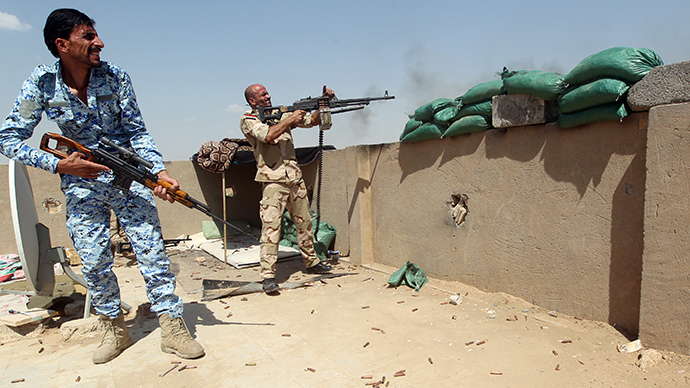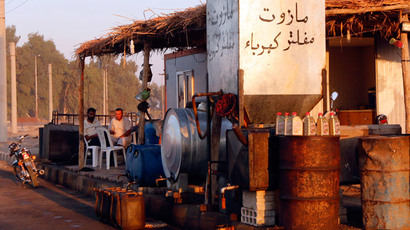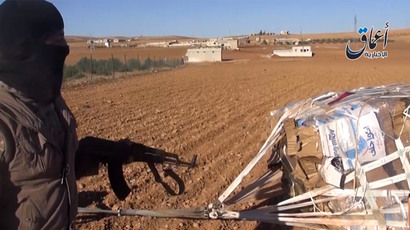ISIS chlorine attack on security forces confirmed – Iraq officials

Eleven Iraqi police officers were taken to hospital after an ISIS chemical weapons attack, with the Defense Ministry and doctors recently confirming the gas as chlorine. This marks the first officially documented militant attack with the chemical.
The Islamic State (IS, formerly ISIS/ISIL) militants’ chlorine gas attack occurred on September 15, in the town of Duluiyah, located north of the capital, according to a Washington Post report.
The blast followed an exchange of fire between the militants and the members of the Sunni Jabbour tribe, who were guarding the town’s borders.
“It was a strange explosion. We saw yellow smoke in the sky,” said Lt. Khairalla al-Jabbouri, one of the survivors.
The victims talked of the fog that hung close to the ground – a possible indication that it was chlorine, which is heavier than air.
The physicians who treated them also confirmed that their diagnosis was poisoning by chlorine gas.
“They were panicked; we were panicked,” said Kasim Hatim, director of the hospital in the nearby city of Balad, where the officers were taken. “We initially thought it might be a more serious gas, a nerve gas or an organophosphate.”

A recent statement from the Iraqi Defense Ministry said that the IS had used the gas in a “primitive and ineffective way” – in roadside bomb attacks and near several water treatment plants where it had gained access to chlorine. Without indicating the locations of the attacks, the statement said that the militants aimed at impairing “the morale of the Iraqi people in general and our armed forces in particular.”
American defense officials were not aware of the September 15 chlorine attack and referred to the Iraqi government for further information.
Alistair Baskey, spokesman for the National Security Council, told the New York Times on Thursday, “The use of chlorine as a chemical weapon is an abhorrent act. These recent allegations underscore the importance of our work to eliminate chemical weapons in this volatile region.”
There have lately been several reports of IS militants using chlorine gas on the battlefield, however, none had been officially confirmed. They appeared after the jihadists seized a large former Iraqi chemical weapons production plant this summer, whose 2,500 degraded rockets the Iraqi officials claimed unlikely to be fit for use.
Earlier this week, reports were circulating that there was a chemical attack in the besieged Syrian town of Kobani on Tuesday. But the chemical agent the IS militants used couldn’t be identified, as doctors lacked necessary equipment to diagnose the cause of complaints made by Kurdish victims and activists.
#Kobane doctor tells me: "Victims who are on their way to clinic speak of following symptoms: teary eyes, suffocation & skin burns."
— Jenan Moussa (@jenanmoussa) October 21, 2014
As a choking agent, chlorine was widely used during World War I. Nowadays it is sold legally as a key component in industry, but its use as a chemical weapon violates the Chemical Weapons Convention.














